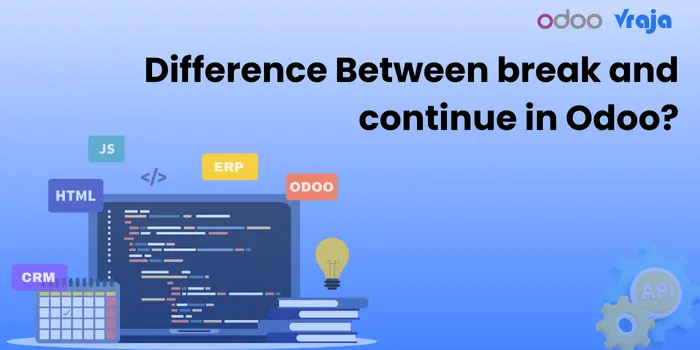
Overview
In Python, break and continue are loop control statements used to alter the flow of loops (for or while). Though both affect the loop, they behave differently:
Statement | Action |
break | Exits the loop entirely |
continue | Skips the current iteration only |
✅ break – Exit the Loop Immediately
Description:
The break statement terminates the entire loop once a specific condition is met. It prevents any further iterations.
Syntax:
for item in iterable:
if condition:
break
Realistic Odoo Example:
Loop through partners and stop at the first one that has a valid email:
for partner in self.env['res.partner'].search([]):
if partner.email:
_logger.info("Found partner with email: %s", partner.name)
break # Stop the loop immediately
Use break when you want to exit after the first match.
✅ continue – Skip Current Iteration
Description:
The continue statement skips the current loop iteration and moves to the next iteration without executing the remaining code inside the loop.
Syntax:
for item in iterable:
if condition:
continue
# remaining loop code
Realistic Odoo Example:
Loop through partners and skip the ones without an email:
for partner in self.env['res.partner'].search([]):
if not partner.email:
continue # Skip if email is missing
_logger.info("Processing partner: %s", partner.name)
✅ Use continue to ignore or filter specific records during looping.
🔍 Summary Table
Feature | break | continue |
Loop behavior | Exits loop immediately | Skips current iteration, continues loop |
Position in loop | Usually inside if condition | Same |
Use case | Stop at first match | Skip/ignore unwanted values |
✅ When to Use in Odoo
Use Case | Recommended Statement |
Stop when first valid record is found | break |
Skip processing for invalid/incomplete records | continue |
Improve performance in record iteration | Both as needed |